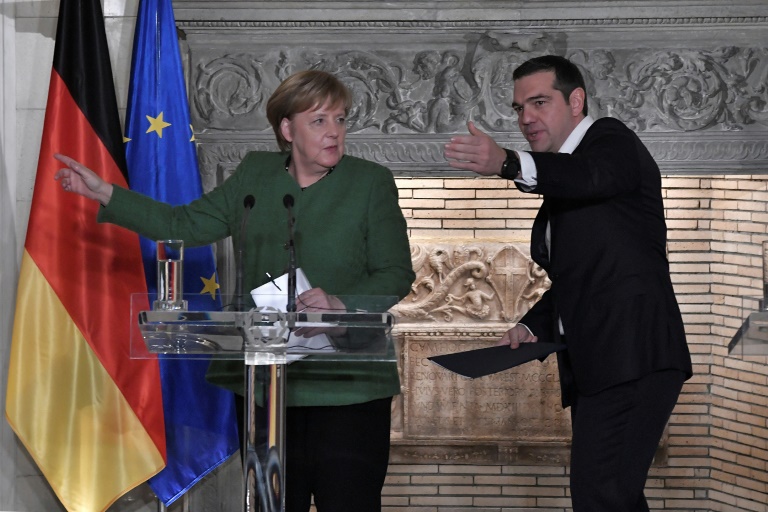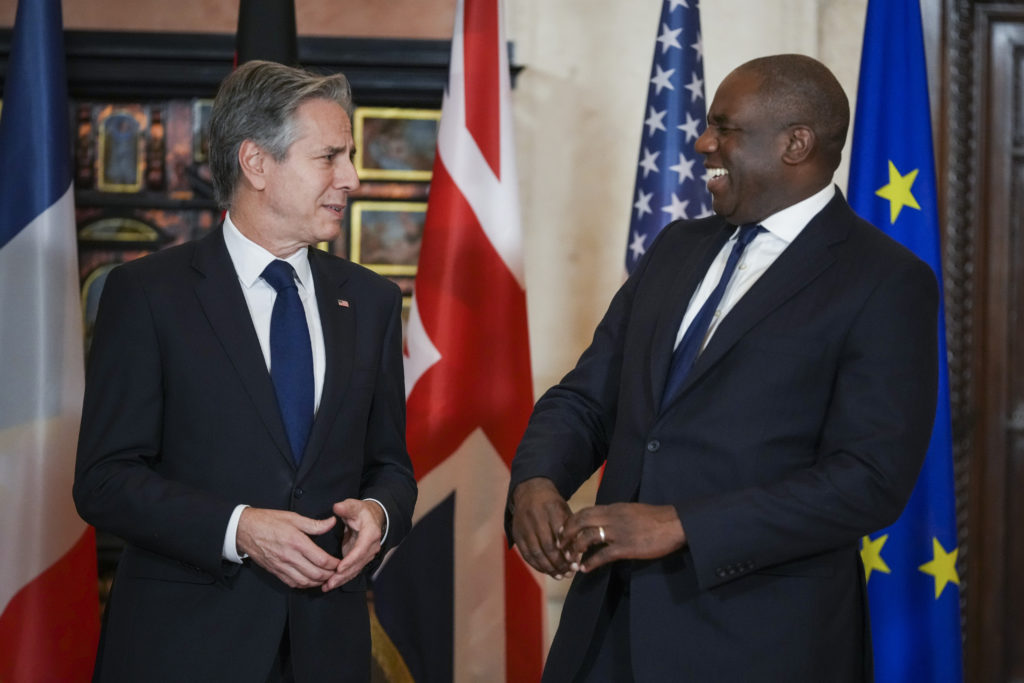Greece and Germany will bring down the curtain on a frequently difficult chapter in relations when Angela Merkel embarks on her final visit to Athens as chancellor on Friday.
German financial rectitude never sat well with Greeks, who made both Merkel her then-finance minister Wolfgang Schaeuble the target of their anger as the country was buffeted by the financial crisis post-2008 that led the European Union to impose tough austerity measures.
“One of the most hated women in Greece” was how German tabloid Bild described Merkel as she faced angry protests on a visit to Athens in 2012.
Looking back in September, she conceded that “the most difficult moment of my term was when I asked for so much from Greece.”
Starting in 2010, Merkel began to urge Greece’s then Socialist prime minister, George Papandreou, to implement tough austerity measures to cut burgeoning public deficits.
The Greek government agreed to the painful budget cuts and tax increases in return for 300 billion euros (now $370 billion) in international bailout funds.
Pensions were slashed and the minimum monthly wage fell to less than 600 euros and a wave of privatisations was set in motion.
In addition, staffing levels in public services and hospitals were reduced and there were shortages of medicines and other material.
At the height of the crisis in 2012, Merkel faced protesters brandishing banners with Nazi swastikas and depictions of her as a Hitler caricature.
– ‘Go back’ –
After leftist radical Alexis Tsipras was elected prime minister in January 2015, tensions became almost palpable.
Months before he became leader, Tsipras had memorably told Merkel to “go back”.
By this time, Athens was facing being kicked out of the euro, but finally bowed to pressure from its creditors and agreed to fresh austerity measures.
As she bows out of office after 16 years, Merkel’s stock remains low in Greece.
A Pew Research poll conducted in 16 different countries found that, in Greece, only 30 percent of people had confidence in her, compared with an average of 77 percent elsewhere.
Current Greek Prime Minister Kyriakos Mitsotakis said last week in Brussels that Merkel “will be the first to admit, as indeed, she already has, that she asked a lot of the Greeks, on several occasions and that austerity went beyond what Greek society could bear.”
For Alexander Kritikos, at the German Institute for Economic Research (DIW), Merkel’s farewell visit to Athens “is an important signal indicating that the very difficult past years of economic crisis in Greece can now be considered as well on the way to being successfully concluded.”
He said that the German leader had been able to establish amicable relations with the current conservative Greek government which “finally signifies normality” returning to ties between the two countries.
The visit “marks a turning point for Greece which has advanced out of the crisis,” said a Greek government source.
The talks on Friday will focus primarily on the energy crisis in Europe and the ongoing fight against the pandemic, the source said.
Relations with Turkey will also be on the agenda, as will migration and the situation in Libya.
Athens is hoping that Merkel’s successor wil not be quite as conciliatory as she has been on occasion with Turkish President Recep Tayyip Erdogan, particularly on thorny issues such as Turkey’s gas exploration in waters claimed by Greece in the Eastern Mediterranean, and difficult relations over the divided island of Cyprus.
Relations between Athens and Ankara were further soured with the deployment in August last year of a Turkish seismic research vessel in disputed waters.
Greece has since signed a deal to buy French Rafale fighter while Turkey is set to take delivery of six submarines designed in Germany.









